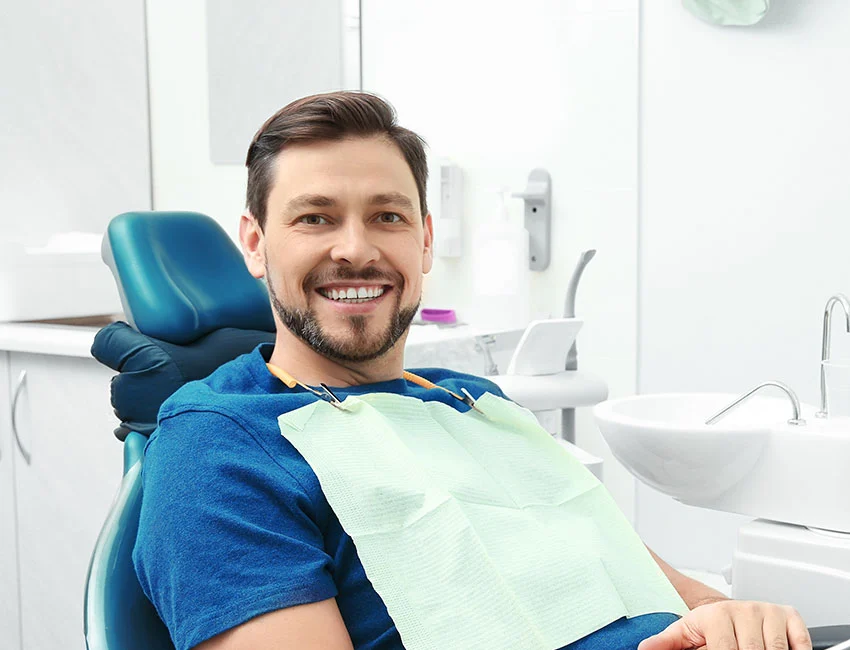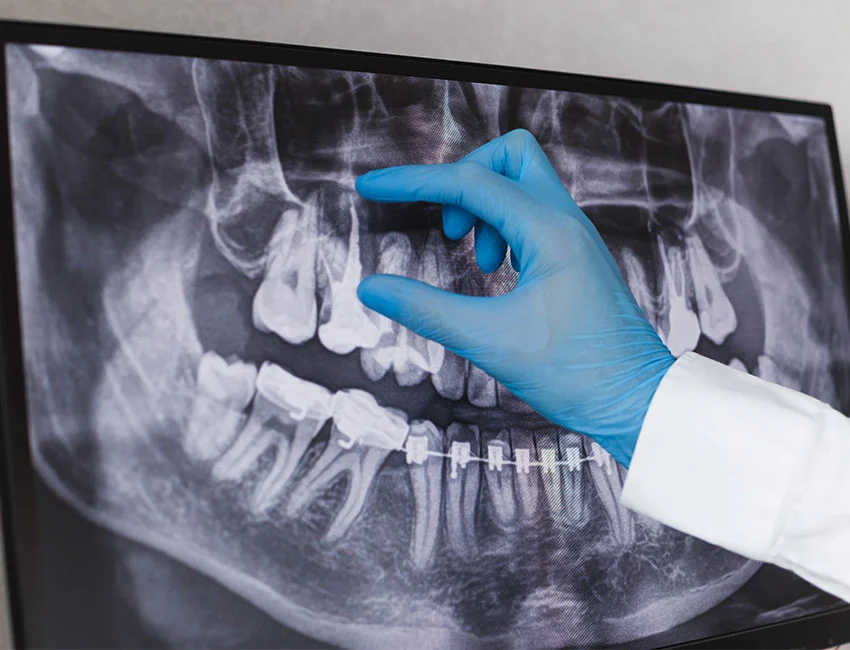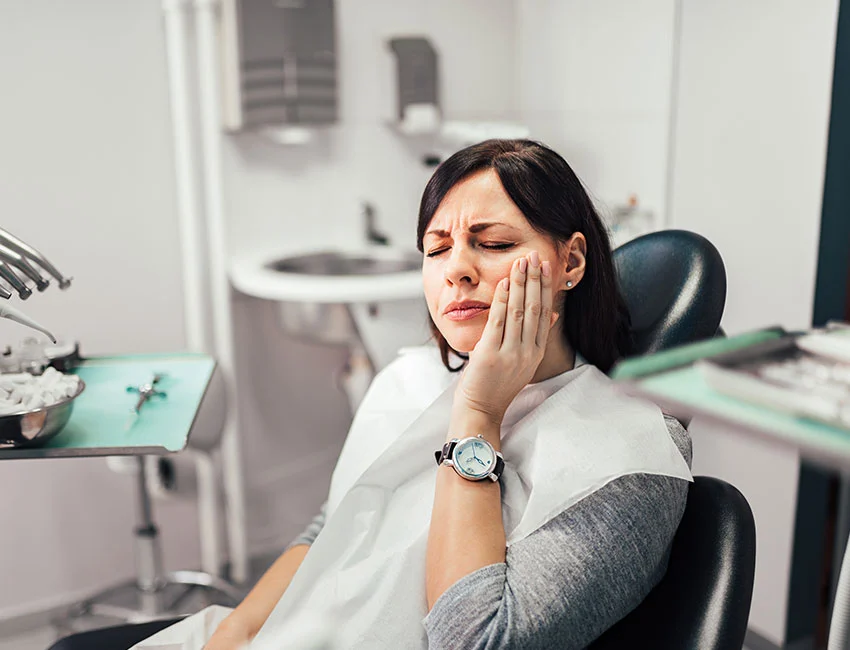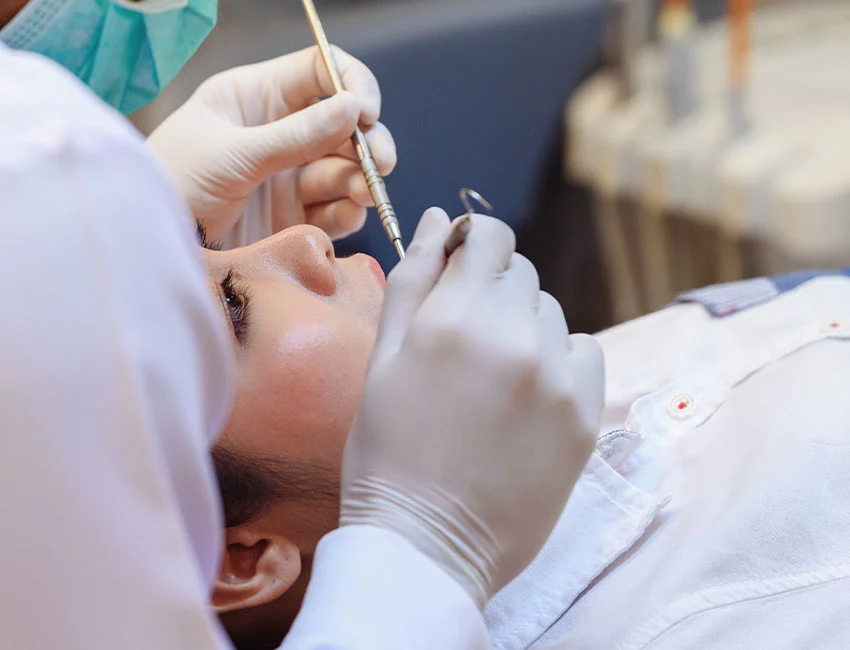Root Canals in Lancaster, CA
Are you experiencing severe pain, ongoing sensitivity, or unusual discoloration? These symptoms could indicate pulp damage due to deep decay, a fracture, or past injury. AV Dental Wellness Group specializes in premier dental services and is committed to your oral health. Our team, led by Dr. Sekhon, takes pride in transforming smiles with efficient root canal treatments that save teeth and restore confidence.

Be proud of your smile
Save your natural tooth
Root canal treatment is a highly effective procedure in modern dentistry to save your teeth from further infection and tooth extraction.
Understanding Root Canals
Root canals may sound daunting, but they’re vital for maintaining your oral health. They address deep-seated tooth issues by focusing on the dental pulp—the core of your tooth rich in nerves and blood vessels. Inflammation or infection here can be quite painful and, if left untreated, can lead to more serious problems. Our root canal therapy gently removes the infected pulp, thoroughly cleans the tooth, and seals it to prevent future issues.
When You Might Need a Root Canal
Rather than fillings or crowns, which repair the outermost layers of teeth, root canal treatments are needed when the nerve becomes involved. Root canals may be required when a tooth has an abscess or is severely cracked or broken. Common scenarios where root canals are needed include:
- Severe tooth pain
- Traumatic injuries
- Hypersensitivity to hot temperatures
- Abscessed teeth
- Deep areas of tooth decay
- Cracks that extend into the tooth root
Our thorough assessments with digital X-rays and an evaluation with our skilled dentist in Lancaster, CA, will determine if a root canal is the right solution to restore your comfort and dental wellness.

Advantages of Root Canal Therapy:
- Ability to save tooth vs. tooth extraction
- Relieve toothache
- Prevent infection from spreading to bone or neighboring teeth
The Root Canal Procedure at AV Dental Wellness Group
Our promise? To ensure your root canal treatment is smooth and comfortable. Here’s what to expect:
- Consultation: We begin with a comprehensive check-up to diagnose whether a root canal is necessary for your smile.
- Comfort is Key: We prioritize your comfort with local anesthesia to numb the area—no need to worry about pain during the procedure.
- Cleaning: We gently remove the damaged pulp through a tiny opening and eliminate any infection.
- Tooth Preservation: After cleaning, we seal the inside of your tooth with a special material called gutta-percha, preventing further infection or damage.
- Crown Placement: We place a crown over your tooth to protect and restore it, ensuring its natural function and strength for long-term use.
Our AV Dental Wellness Group team understands that the idea of a root canal can be intimidating, but our goal is to make the process as comfortable and pain-free as possible.
If you’re unsure whether you need a root canal, contact AV Dental Wellness Group to schedule a consultation with our team. We’ll examine your teeth, take x-rays, and determine the best course of treatment for your condition.
Do Root Canals Hurt?
It is a common misconception that root canal treatment hurts. The reality is that root canals help relieve the source of your tooth pain rather than cause additional discomfort. In fact, root canal treatment is like any routine dental treatment. The teeth are numbed with a local anesthetic beforehand so that you won’t have to feel anything more than a little pressure. Additional local anesthetic can be used if your tooth feels sensitive.
Because abscessed teeth can interfere with local anesthetic’s ability to work properly, our Lancaster dentist may prescribe an antibiotic for you to take leading up to your appointment. The antibiotic will reduce any swelling or drainage so that numbing medications work more effectively. Just remember that the antibiotic will not prevent any reinfection, so a root canal will still be required.
Additionally, sedation may also be available upon request to help you relax as best as possible.
Root Canal Aftercare
After root canal treatment, your mouth might be slightly sensitive where the local anesthetic was placed or from having your tooth gently propped open for an extended period of time. The good news is that endodontic treatment removes the infected nerve, so your tooth can no longer transmit pain or sensitivity sensations.
To prevent any recurring decay or damage to your treated tooth, floss and brush around it daily and schedule regular checkups. A protective crown will help reduce any accelerated wear or breakage in your enamel since the tooth will be more brittle than normal.
Importance of Root Canals
A root canal is a procedure that removes the infected pulp from a tooth to prevent the complete extraction of that tooth. The pulp contains nerves, connective tissue, and blood vessels. A cavity can cause an abscessed tooth which would require endodontic treatment to remove it. With no treatment, an abscessed tooth can continue to spread infection throughout the mouth and face and could even lead to a medical emergency. For this reason, it’s important to have your teeth checked by a dentist regularly.
Even if your tooth doesn’t hurt, you might need a root canal. Because the nerve of your tooth is compromised, it may not relay symptoms properly. You could have a severe infection or dying tooth without ever feeling a thing.
Root Canal Prevention
To prevent a root canal, it’s essential to treat any cavities early while they are still small. Minimally invasive restorations such as fillings can prevent the spread of decay and infection. Without treatment, the cavities will only get worse and eventually lead to an abscessed tooth, which would then require root canal treatment and unwanted pain.

Do you think you might need a root canal?
Schedule a free consultation today at AV Dental Wellness Group.
Cost of Root Canal Treatment
A root canal treatment costs as much as a crown or bridge but can save you thousands of dollars in added fees related to an extraction and future tooth replacement. Especially considering that an endodontically-treated tooth can last for decades after the procedure. A root canal is your tooth’s last hope of avoiding an extraction. Depending on which tooth needs treatment and the number of roots it has, a typical root canal costs anywhere between $500 to $1500. To reduce your out-of-pocket expenses, we will work with your insurance carrier to maximize the benefits you have available. Flexible payment plans are also available.
Why Choose AV Dental Wellness Group?
Opting for root canal therapy with us means trusting Dr. Sekhon and our compassionate team with your smile. We prioritize minimizing discomfort while providing exceptional care. We guarantee a seamless and pain-free procedure with cutting-edge technology and advanced techniques. Our personalized approach ensures you feel supported throughout the entire process.
Ready to Save Your Natural Tooth?
Is tooth pain disrupting your life, or are you considering a root canal? Contact AV Dental Wellness Group today. We’re dedicated to restoring teeth, bringing back smiles, and boosting confidence—one happy patient at a time! Reach out now to schedule your consultation.
On This Page
- Understanding Root Canals
- When You Might Need a Root Canal
- The Root Canal Procedure at AV Dental Wellness Group
- Do Root Canals Hurt?
- Root Canal Aftercare
- Importance of Root Canals
- Root Canal Prevention
- Cost of Root Canal Treatment
- Why-Choose-AV-Dental-Wellness-Group?
Related Topics
Frequently Asked Questions
In some cases, requires two appointments; one appointment to identify the need for the root canal, and one appointment to carry out the treatment. This does occur sometimes, but not always; a root canal can be finished in one visit when possible. It is always our goal to get our patients out of pain or discomfort as quickly as possible.
The only other option is to remove it – though it is always better to preserve the natural tooth rather than remove it.
Root canals are needed when the tooth has sustained a large amount of damage or decay. To avoid it, be sure to keep up with brushing and flossing twice daily, as well as your regular dental check-up and cleanings. Avoid sugary and acidic foods and beverages. If you play contact sports, always ensure that you wear a mouthguard.
Definition of common root canal terminology
Dental Pulp: Dental pulp is the innermost layer of your tooth that contains the nerves and blood vessels.
Tooth Enamel: Enamel is the thin outer covering of the tooth. This tough shell is the hardest tissue in the human body.
Tooth decay: Tooth decay is the breakdown of teeth due to acids produced by bacteria.
Cavity: A cavity is a hole in a tooth that develops from tooth decay.
Root : Tooth structure found below the bone that holds the tooth in place.
Endodontist: Endodontists are highly skilled dental specialists in diagnosing and treating tooth pain and performing root canal treatment.
Endodontic Treatment (Root canal treatment) : The term endodontic treatment covers all aspects of repair and treatment of a tooth in which the pulp (the inner area of teeth) has been either damaged or exposed.
Crown: A dental crown is a custom-made, permanent restoration that replaces the top part of the tooth.

The AV Dental Wellness Group Experience
- Pain free treatments
- Friendly and Caring Staff
- Affordable Financing Options
- Same-day appointment for emergencies
Hear From Our Patients
Book Your Free Consultation Today
Achieve the confident, beautiful, and healthy smile you deserve
About our Dentistry
- CA (License 18044). View License Information
- Insurance: We work with most insurance providers.
- No Insurance? No problem call 661-942-1179 for more information.
- Financing Options: We offer a wide range of dental financing options.
- We serve patients from the following counties: Los Angeles
- We serve patients from the following cities: Lancaster, Rosamond, Palmdale, Quartz Hill, Littlerock, Acton, Tehachapi, California City and Llano
- Have Questions? Please feel free to contact us at 661-942-1179
Helpful links: WebMD (Root Canal Therapy) | ADA (Glossary of Dental Terms)
